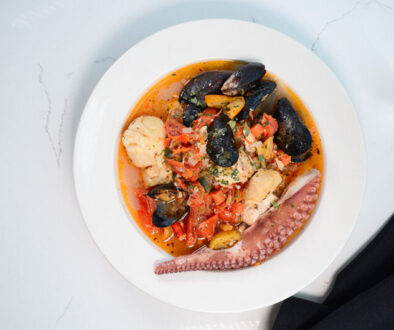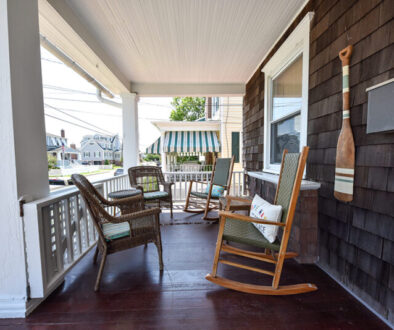Jersey Shore Alpacas
To succeed in business, you need a good idea, a good plan, and, in the case of Jersey Shore Alpacas, a little divine intervention.
In 2005, looking ahead to retirement, Tish and Jim Carpinelli were intrigued by alpaca farming, a cottage industry then at its height. Hoping to spend their next chapter in the agritourism business, the couple bought expectant females Andina and Chanel No. 5 and a gelding named Cherokee. Soon babies Oliver and Annabel Lee joined the herd.
And just like that, the one time school librarian and Coast Guard veteran were alpaca farmers.
But the venture didn’t take off quite as planned. In fact, says Tish, “We did this for nine years before we broke even.” When the going got tough, the couple leaned on their faith. “We felt God wanted us to do this,” says Tish. “So, we said, ‘If you want us to continue, we need a sign or we’ll have to end the business and rehome the animals.’”


Within months, a group of visitors had posted five-star reviews on TripAdvisor, and traffic and sales skyrocketed. “It was the beginning of the turnaround,” says Tish. “I think being this close to Cape May is really what saved us.”
At the roadside attraction in Green Creek, you’ll learn everything you ever wanted to know about these doe-eyed animals. They’re a domesticated variety of the vicuña, a fleet-footed mammal that lives in the Andes mountains of South America. They’re also related to camels and llamas but are smaller and slighter.
And while their genetic cousins often serve as beasts of burden, alpacas are raised chiefly for their ultra-soft, super-warm fleece, which can be woven into yarn for scarves, gloves, and other luxury apparel, as well as bedding and even braided rugs and baskets. The farm animals are sheared once a year in May, and each produces enough wool to make one sweater.
In the wild, alpacas would be unlikely to survive, as nature has left them almost defenseless, without horns, hooves, or upper teeth. Luckily, they’re also nimble and quick, and can run at speeds of more than 30 miles per hour. They have another formidable weapon, too: their spit. When annoyed, these otherwise docile creatures can projectile hurl at ranges of up to 10 feet.


But not to worry. Typically, the Carpinelli herd, which now numbers 15, is happy to meet and accept carrots from visitors. But best not to try to pet these mop tops: they’re social and gentle, but a little skittish, and in terms of temperament, are “more like cats than dogs,” says Jim. That said, alpacas crave companionship, and should always be raised with others of their kind.
Alpacas communicate with a whole vocabulary of sounds, from humming to grunting to clucking at their offspring, known as “crias” (their warning call can sound like the trumpeting of an elephant). The breed lives to be about 20 years of age, and among the current herd, the original crias, Oliver and Annabel Lee, are still part of the pack.
To meet the farm crew, you can join a fence-line feeding tour on Saturdays (free, by appointment only) or take a private 30-minute “mingling tour” on Mondays, Thursdays, and Fridays ($25 to $40 donation, up to six people).


It was fun to meet and learn about these striking animals, and I also enjoyed visiting the farm shop, stocked with lush sweaters, hand-knit scarves, adorable fleece toys, felted soaps, and other items, many made in Peru. They’re perfect for gift-giving, and I got a leg up on the holidays, buying gorgeous, knitted ski caps and “glittens” for the kids.
I also picked up a few hand-drawn greeting cards by Juan Francisco Bustamante, a young deaf man who lives at the Efata Children’s Home in Lima, Peru. Francisco receives a portion of all sales to help him pursue his artistry and otherwise win in life.
It’s been 18 years since the Carpinellis brought home their first trio of alpacas. Despite some obstacles along the way, they couldn’t imagine another, more pleasant way of life. They’ve achieved the happy ending they envisioned, and according to the mission statement on their website, are “pleased to be uniquely connected to God’s creation, and to share it with others through these endearing animals.”
Visit
Jersey Shore Alpacas
521 Route 47 South
Cape May
jerseyshorealpacas.com
609-889-4957



